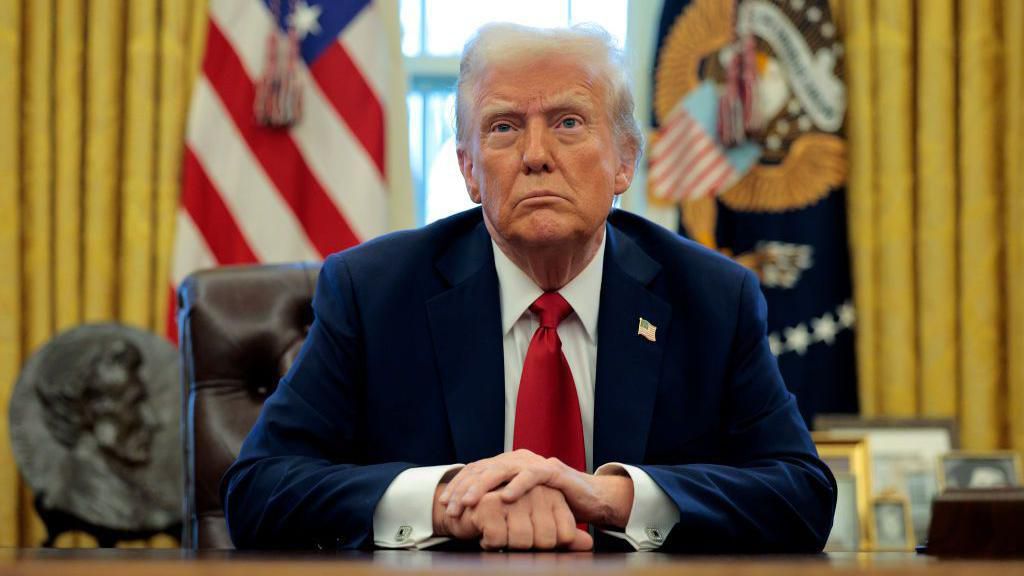US Implements Broad Travel Ban Sparking International Reactions and Debate

A new presidential proclamation, signed on June 5, 2025, by the Trump administration is set to expand U.S. travel restrictions, targeting numerous nations across Africa, the Middle East, Latin America, and Asia. The policy, scheduled to take effect at 12:01 a.m. on Monday, June 9, has raised significant concerns over visa access, potential travel disruptions, and broader global fallout, particularly as it coincides with the busy summer travel season. The administration has cited national security, addressing visa overstays, and combating terrorist activity as primary motivations for these stringent measures.
The expanded order imposes a broad entry ban for individuals from twelve countries: Afghanistan, Chad, the Republic of Congo, Equatorial Guinea, Eritrea, Haiti, Iran, Libya, Myanmar, Somalia, Sudan, and Yemen. These restrictions will impact various categories of travelers, including those holding temporary visas such as tourists, students, and short-term business visitors. Furthermore, the administration has placed additional visa limitations on seven other nations: Burundi, Cuba, Laos, Sierra Leone, Togo, Turkmenistan, and Venezuela. While not a complete ban for these countries, the policy restricts the issuance of specific visa types, thereby tightening U.S. immigration processes. Officials also referenced a recent violent incident in Colorado involving an Egyptian national who reportedly overstayed his visa as one factor motivating the accelerated rollout of this policy, aiming to address both national security and visa enforcement.
This newly expanded order bears a strong resemblance to a series of travel bans implemented during President Trump’s previous term. Those earlier directives initially focused on several Muslim-majority nations. Over time, the list of affected countries evolved, with some nations being added or removed. By 2020, the policy had expanded to include additional countries, setting a precedent for the current measures. The administration has indicated that the current list could also be revised, with new countries potentially being added in the future.
The timing of the proclamation, just days before many scheduled trips, is expected to cause significant disruption, potentially forcing travelers from affected countries to cancel or alter plans last minute. Beyond immediate travel plans, the directive has created considerable uncertainty even for lawful permanent residents and existing visa holders from other nations, who now fear heightened scrutiny or denial of reentry based on their country of origin or perceived ties to restricted regions. The American Society of Travel Advisors (ASTA) acknowledged the legitimacy of concerns regarding visa overstays and screening procedures but urged that such measures be implemented transparently and without unfair discrimination, emphasizing the need to balance national security with the tradition of welcoming global visitors.
The Trump administration has firmly anchored its rationale for the travel ban in national security. President Trump emphasized that the U.S. will not permit entry to individuals from these countries who may wish to harm the nation or its citizens. This justification is supported by findings from the Department of Homeland Security (DHS), which compiled data on visa overstays and reported on the prevalence of terrorist activity within the targeted nations. The DHS report highlighted these countries for failing to meet U.S. security standards and for inadequate information sharing about travelers. Specific concerns include Venezuela's weak identification and passport control systems and political instability; Iran and Myanmar's alleged links to militant groups; and Cuba and Burundi's lack of cooperation with U.S. security protocols and intelligence sharing. Additionally, the administration pointed to the slow implementation of biometric screening systems and insufficient data provision by these countries as further reasons for the restrictions.
The travel ban has drawn swift and strong condemnation from affected nations and international organizations. Venezuela decried the measures as politically motivated, unjustified, and a "hostile act" intended to isolate its people, issuing a travel alert for its citizens. Iranian officials described the U.S. decision as clear evidence of a "supremacist and racist" mindset, stating it shows "deep hostility" towards Iranians and Muslims and violates fundamental principles of international law, including the prohibition of discrimination. Iran has vowed to take necessary measures to protect its citizens' rights. Critics, including civil rights organizations like the ACLU, have labeled the ban discriminatory, xenophobic, and Islamophobic, arguing it undermines U.S. moral standing. There are widespread concerns that these bans will damage diplomatic ties and disproportionately affect innocent individuals from developing nations.
Domestically, while some support the measures as necessary for national security and immigration enforcement, advocacy groups argue that the ban restricts freedom of movement and targets individuals based on nationality rather than specific threats. The inclusion of countries like Cuba and Venezuela, with whom the U.S. has longstanding political tensions, has fueled accusations that the ban is politically driven. Legal experts anticipate significant legal challenges, similar to those faced by Trump's previous travel bans, which were partly blocked by federal judges on constitutional grounds. Attorneys for affected individuals and advocacy groups are reportedly preparing arguments focusing on discriminatory intent and violations of due process.
The expanded travel ban signals a renewed emphasis by the Trump administration on national security through stringent immigration control. This policy rekindles intense debates over the effectiveness, fairness, and broader implications of such measures. As the ban takes effect, the State Department and DHS are expected to provide further guidance. However, the timing and scope of this order are poised to have far-reaching impacts on global mobility, international relations, and the U.S.'s approach to immigration, especially as global travel continues to recover post-pandemic. The long-term consequences will likely shape U.S. foreign policy and immigration strategy for the foreseeable future, while the world watches to see how these restrictions unfold and withstand legal scrutiny.
You may also like...
Diddy's Legal Troubles & Racketeering Trial

Music mogul Sean 'Diddy' Combs was acquitted of sex trafficking and racketeering charges but convicted on transportation...
Thomas Partey Faces Rape & Sexual Assault Charges

Former Arsenal midfielder Thomas Partey has been formally charged with multiple counts of rape and sexual assault by UK ...
Nigeria Universities Changes Admission Policies

JAMB has clarified its admission policies, rectifying a student's status, reiterating the necessity of its Central Admis...
Ghana's Economic Reforms & Gold Sector Initiatives

Ghana is undertaking a comprehensive economic overhaul with President John Dramani Mahama's 24-Hour Economy and Accelera...
WAFCON 2024 African Women's Football Tournament

The 2024 Women's Africa Cup of Nations opened with thrilling matches, seeing Nigeria's Super Falcons secure a dominant 3...
Emergence & Dynamics of Nigeria's ADC Coalition

A new opposition coalition, led by the African Democratic Congress (ADC), is emerging to challenge President Bola Ahmed ...
Demise of Olubadan of Ibadanland
Oba Owolabi Olakulehin, the 43rd Olubadan of Ibadanland, has died at 90, concluding a life of distinguished service in t...
Death of Nigerian Goalkeeping Legend Peter Rufai

Nigerian football mourns the death of legendary Super Eagles goalkeeper Peter Rufai, who passed away at 61. Known as 'Do...




